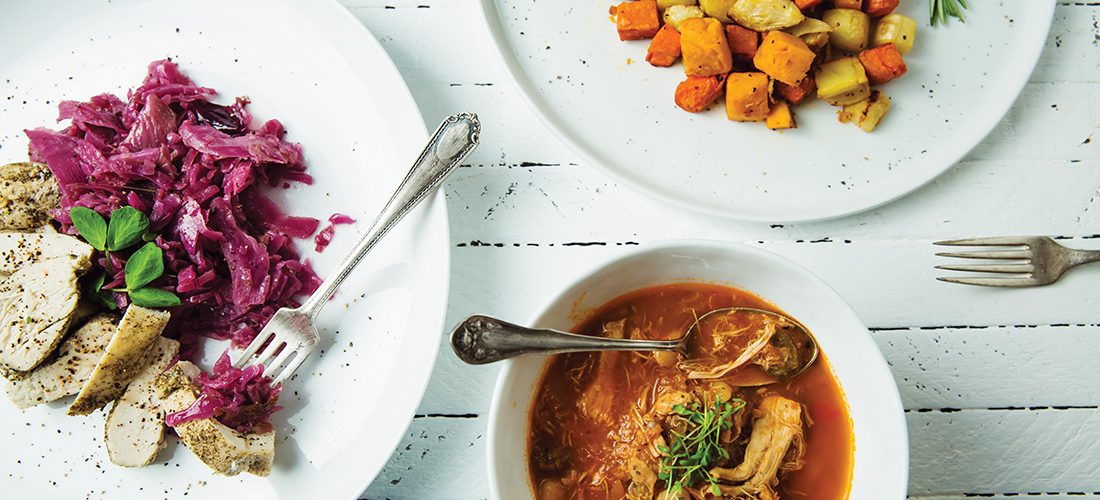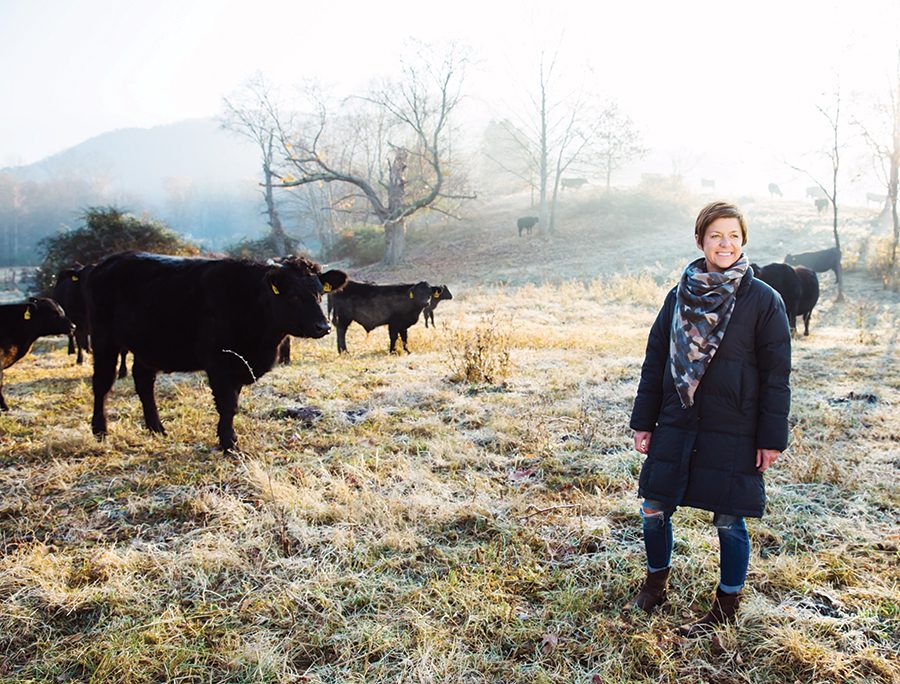How it’s grown
April 1, 2022

The Good Kitchen teams with farmers practicing regenerative agriculture to ensure a healthy impact beyond the plate.
by Michael J. Solender
Amber Lewis followed a simple idea when she began creating prepared meals for sale out of her Charlotte kitchen in 2011. Lewis knew others shared her values surrounding healthy, tasty and nutritious food featuring sustainably sourced ingredients and saw a business opportunity. A large opportunity, it turned out. Over 10 years, local sales of 50 paleo meals a week mushroomed into as many as 10,000 meals a week, sold nationally.
“Our business addresses a lifestyle need,” says Lewis, founder and CEO of The Good Kitchen (formerly modPALEO). “If you want to have food transparency, know where your food comes from, a short ingredient list, then you’re our customer.”
Eating healthy has long been an American mantra. But how people define that for themselves and the planet is evolving into a nuanced and complicated discussion at every point along the supply chain. Recognizing the power of the purse, a growing legion of consumers are choosing ecologically sustainable goods and products. Marketers call this new demographic category Lifestyles of Health and Sustainability, or LOHAS.
“It’s a big market,” says Lewis, who oversees production kitchens in Morganton for TGK’s nationwide distribution. “Covid drove that quite a bit, not only for home delivery, but also from the health and wellness aspect. We have a set of customers that are heavily female, in the 24 to 40 [age] range. We also have a subset of customers that are empty nesters, and they just don’t want to cook. And our third subset of customers are experiencing a diagnosis with an autoimmune disease or health issue and are looking to help manage this with their diet.”
TGK offers up to 40 fully cooked meal choices through a rotating online menu. Meals are also distributed through Amazon and Walmart online. Categories include clean eating, paleo, ketogenic, autoimmune protocol and Whole30-approved meals for a la carte, weekly, biweekly or monthly delivery. Recent offerings included Beef Mole Pot Roast with Cauliflower Brown Rice, Vegan Paella with Catalan Roasted Vegetables, Chicken Tinga with Spaghetti Squash, and Roasted Salmon with Brussel Sprouts, Sweet Potato and Spinach Pecan Pesto.
Meals are gluten-free, beef is grass-fed, and organic ingredients are used as much as possible. Pesticides are avoided when sourcing ingredients, and proteins like chicken are antibiotic-free.

Lewis and her team at TGK — which includes local chef Tim Groody, who is director of R&D and production — are part of a movement in the food industry focused on a broader definition of overall health. “Everything we eat has an impact on our environment — our air, water and land,” Lewis says. “Overall health and wellness go into how the product you’re creating was treated, how it was raised and how it came to the plate. What’s happening to the environment is happening to our bodies through our consumption of food.”
TGK’s primary differentiator is its sourcing and the transparent nature of where and how its food is grown, Lewis says. “We’re in a flooded market of people that say one thing and do another. We are not doing that.”
In pursuit of sources who practice regenerative agriculture, TGK recently partnered with Land to Market, a Boulder, Colo.-based nonprofit working with ranchers and farmers to analyze and support holistic management of grasslands. Regenerative agriculture includes techniques such as crop rotation, water usage and grazing practices, which vary by location. One such supplier for TGK is Hickory Nut Gap Farm in Fairview, near Asheville, which produces grass-fed and pasture-raised meats.
“Beef produced employing regenerative practices is making the land better because of how it was raised and how the products inside of this were grown,” says Chris Kerston, chief commercial officer for Land to Market. “How we manage land can solve many problems,” he says. “How society engages with land is predominantly for food and fiber. We’re recognizing this notion that we can solve some of the world’s biggest problems through better stewardship. These leader brands like TGK are driving that, but it takes these first adopters to lead the way to make it the new normal.”
Producers like TGK whose values align with sustainable practices serve as both educators and suppliers to the public.
“Food produced using these practices is nutritionally different,” says Kris Reid, vice president of culinary innovation for TGK. “The protein is nutritionally different. The vegetables are nutritionally different. Working with Land to Market, we’re trying to create impact on [the existing] model and putting pressure on it so it becomes more affordable for people to farm that way.” Reid is also executive director of the Piedmont Culinary Guild, a local organization committed to development of local food systems.
“Businesses have an incredible responsibility to the planet,” Reid says. “The impact we’re creating isn’t just about human health. It’s about environmental health. And we are committed to doing this right.” SP